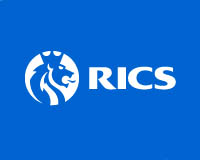 The RICS has handed out one of its largest fines in a warning shot to the industry to be prudent over matters of bribery and financial compliance.
The RICS has handed out one of its largest fines in a warning shot to the industry to be prudent over matters of bribery and financial compliance.
The £125,000 fine and £4,590 costs were imposed on Sweett Group over subsidiary Cyril Sweett International Limited’s bribe to win a Middle East hotel contract. It comes on top of £2.3m in criminal fines, a confiscation order, and costs levied by Southwark Crown Court in February.
The punishment, which stopped short of the firm’s expulsion from the profession, may have been dished out to a construction firm but the ruling shows the need for all entities connected to property to have a strong handle on employees when trading overseas.
In December last year, Sweett Group pleaded guilty to the crime, which was connected to the building of the Rotana Hotel in Abu Dhabi. As a result, its share price fell by 10%.
A 2014 Serious Fraud Office probe into the contract, awarded by the Al Ain Ahlia Insurance Company in the United Arab Emirates, found that Sweett did not have preventative systems in place to stop the bribe by a CSIL employee to AAAI vice-chairman Khaled Al Badie.
At the criminal sentencing, Judge Bedoe said: “Rogue elements can only operate in this way – and operate for so long – because of a failure properly to supervise what they are doing and the way they are doing it.”
Largest recorded fines handed out by RICS, 2007-2016. Source: RICS
Company |
Description/location |
Offence |
Hearing date |
Fine |
Costs |
Total |
|---|---|---|---|---|---|---|
Sweett Group |
Global UK company |
Bribery |
2016 |
£125,000 |
£4,590 |
£129,590 |
Norman Russell |
Russell Brothers, Co Down |
Dishonesty |
2015 |
£18,000 |
£5,387 |
£23,388 |
Howard Etches |
Harwood Projects, Epsom |
Breaches of code |
2008 |
£12,500 |
£6,714 |
£19,214 |
John Hope |
SW Surveys, Wiltshire |
No PI insurance |
2011 |
£10,000 |
£3,558 |
£13,559 |
The RICS panel, led by lay chairman John Anderson, heard on 17 August that urgent recommendations made to Sweett by internal risk audit firm KPMG in 2011, and again in 2014, had been ignored, as had guidance from RICS before the Bribery Act came into effect in July 2011.
The firm’s actions after it had self-reported to the SFO were also highlighted by RICS. Sweett Group contemplated opening an escrow account for future payments to a company controlled by Al Badie until “the problem had gone away”, which Judge Bedoe called “a rather cynical commercial decision by the company to hedge its bets”.
RICS considered expulsion of the company on the grounds of the serious criminal offence for financial gain and the reputational damage caused to the profession, but concluded that mitigating factors, including Sweett’s clean record and actions taken since, meant deregistration was not necessary.
The panel also told Sweett to submit its independent anti-bribery review report each year for three years or face further action.
Sweett Group chief executive Douglas McCormick, a fellow of RICS, accepted the breach and the disciplinary action, and pointed to corrective steps taken since, which include closing the subsidiary and dismissing staff responsible.
The stock market-listed firm is considering an appeal, but declined to comment.
Raising ethical standards
The chairman of the international body set up to draw up new international ethics standards for the property industry says he has been flooded with consultation responses from chartered surveyors and property organisations across the world.
International Ethics Standards was launched at a United Nations gathering in 2014 aimed at tackling inconsistency in the ethical standards of real estate across the globe.
Some 100 bodies across the world have now signed up, including the RICS, the American Society of Appraisers and the National Association of Realtors India, as well as supporters, including the Bahrain government, Land Registry UK and the Real Estate Advisory Council of Botswana.
Peter Bolton King, chairman of the International Ethics Standards Coalition, and global property standards director at the RICS, said the coalition had received 400 responses from across the globe to the 10 ethical principles drawn up so far, which include transparency, integrity and verification.
Independent committee members, which include real estate representatives and business professors from Russia, China, France, the US, Germany, Brazil, Malaysia and the UK, will view the responses, and make amendments before sending the final version for publication towards the end of the year.
The standards will provide more detailed guidance for individual associations but IES will have no role as “a global enforcer”, with individual bodies left to interpret them.
Bolton King said: “I’m not saying this is going to put to rest all the problems around the world but the fact that a large number of high quality organisations is coming together has got to keep this well up the agenda.”
View the consultation at www.ies-coalition.org
How to keep your company on the right side of the law
Nigel Layton, partner in KPMG’s risk consulting practice, advises:
• Conduct an anti-bribery and corruption risk assessment that covers all aspects of the business, including risks specific to the countries and industries in which you operate, and implement controls to mitigate these risks.
• Know your third parties and business partners: risk assess (high, medium and low) and undertake thorough due diligence at the outset.
• Ensure all contracts have Bribery Act clauses and make it clear that no third parties should conduct an act of bribery on any business connected to yours.
• Conduct a worldwide staff e-training programme on anti-bribery and corruption to help them identify risks and report any suspicious behaviour.
• Set up a whistleblowing hotline.










